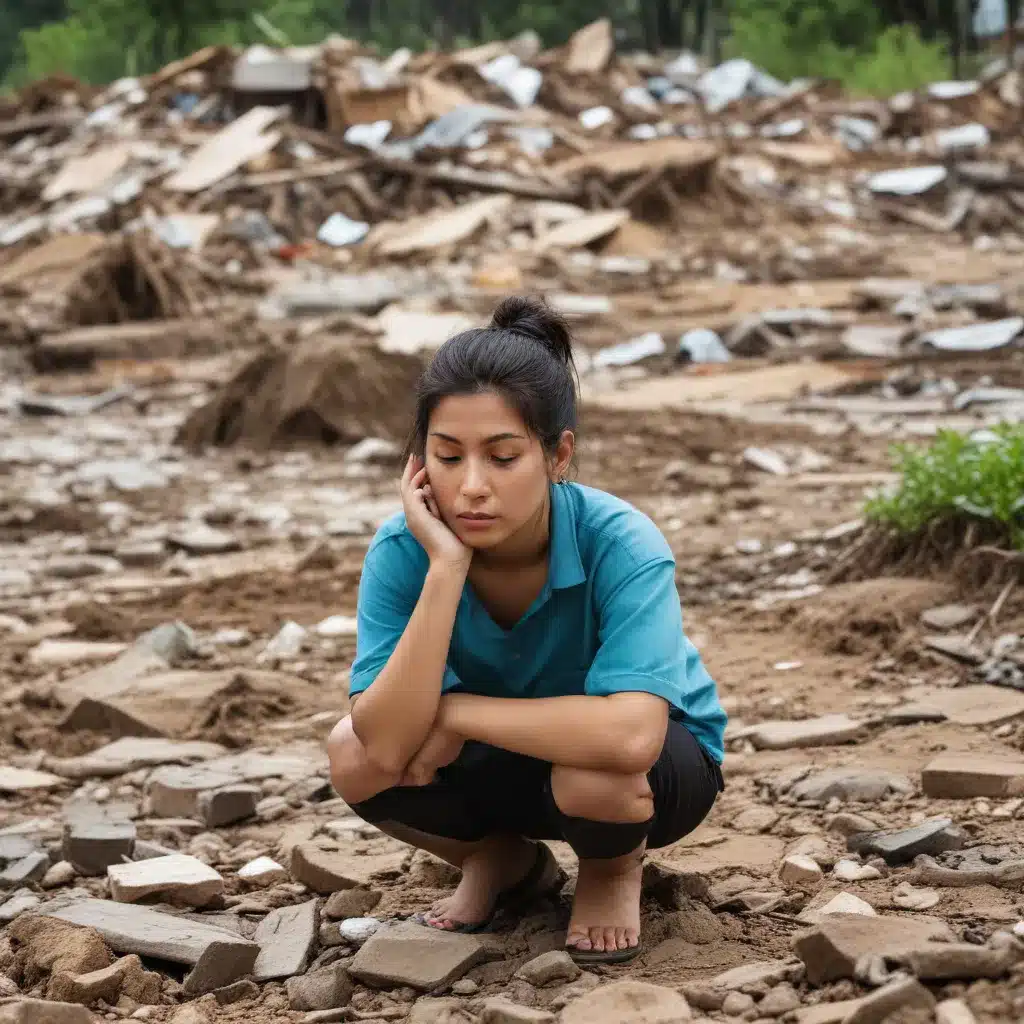
Understanding the Link Between Climate Change and Mental Health
The threat of climate change looms large, with its far-reaching impacts extending well beyond the physical environment. One crucial aspect that is often overlooked is the significant toll climate change-related disasters can take on mental health and wellbeing. As the frequency and intensity of natural disasters increase due to a warming planet, it is vital for schools, families, and communities to understand and address these mental health challenges.
At Stanley Park High School, we recognize the profound impact environmental stressors and disasters can have on the students and families we serve. This comprehensive article aims to explore the intersections of climate change, natural disasters, and mental health, providing valuable insights and practical guidance to support our school community.
The Mental Health Consequences of Climate-Related Disasters
Climate change contributes to a variety of natural disasters, each of which can have severe mental health implications for those affected. Let’s examine some of the key ways these events can impact psychological wellbeing:
Droughts and Wildfires
Prolonged droughts and increasingly frequent wildfires can lead to anxiety, depression, and post-traumatic stress disorder (PTSD) among survivors. The loss of homes, livelihoods, and loved ones, as well as the ongoing stress of living in affected areas, can take a significant toll on mental health. Link to source
Extreme Weather Events
Hurricanes, typhoons, and flooding can cause immediate trauma, displacement, and the disruption of daily routines, all of which are associated with increased rates of mental health issues like anxiety, depression, and PTSD. The long-term recovery process also poses challenges that can exacerbate these conditions. Link to source
Earthquakes and Other Geologic Disasters
Though not directly caused by climate change, geologic events such as earthquakes can also have a significant impact on mental health. Survivors may experience heightened levels of stress, fear, and PTSD, with certain populations, such as children and the elderly, being particularly vulnerable. Link to source
The Role of Epigenetics
Emerging research suggests that the mental health effects of climate change-related disasters may be mediated, at least in part, by epigenetic modifications. Environmental stressors can lead to changes in gene expression, potentially increasing the risk of mental health disorders and altering stress response pathways across generations. Link to source
Disproportionate Impacts on Vulnerable Populations
It is crucial to acknowledge that the mental health consequences of climate change-related disasters do not affect all individuals and communities equally. Certain groups, such as children, the elderly, low-income individuals, and marginalized communities, often bear a disproportionate burden.
Impacts on Children and Adolescents
Children and adolescents are particularly vulnerable to the mental health impacts of disasters. Disruptions to their daily routines, separation from caregivers, and the stress experienced by their parents can all contribute to increased rates of anxiety, depression, and PTSD. Providing targeted support and resources for young people is essential. Link to source
Challenges for the Elderly
Older adults often face greater physiological and psychological challenges in the aftermath of disasters. Reduced resilience, pre-existing health conditions, and social isolation can exacerbate the mental health impacts, leading to heightened anxiety, depression, and difficulty with coping and recovery. Tailored interventions and community support are crucial for this population. Link to source
Socioeconomic Disparities
Individuals and communities with limited resources and access to support systems are disproportionately affected by the mental health consequences of climate change-related disasters. Factors such as poverty, inadequate housing, and lack of healthcare access can compound the psychological burden, underscoring the need for targeted assistance and equitable disaster response strategies. Link to source
Building Resilience and Promoting Mental Wellness
While the mental health impacts of climate change-related disasters can be profound, there are strategies and interventions that can help mitigate these effects and promote resilience within our community.
Enhancing Preparedness and Response
Developing robust disaster preparedness and response plans that prioritize mental health support can make a significant difference. This includes educating the community on disaster management, creating emergency “go-bags” with essential items, and ensuring access to mental health resources before, during, and after the event. Link to source
Promoting Community Resilience
Fostering a strong sense of community, social connectedness, and mutual support can enhance the ability of individuals and families to cope with the psychological impacts of disasters. Encouraging participation in local support groups, volunteering, and community-based activities can bolster resilience and promote overall wellbeing. Link to source
Integrating Mental Health Support
Ensuring that mental health services and resources are readily available and accessible to those affected by climate change-related disasters is crucial. This may include crisis hotlines, counseling services, trauma-informed care, and the integration of mental health considerations into disaster response and recovery efforts. Link to source
Leveraging Epigenetic Research
As our understanding of the epigenetic mechanisms underlying the mental health impacts of environmental stressors grows, there may be opportunities to develop more targeted interventions and preventive strategies. Exploring the potential of epigenetic markers as indicators of risk and resilience could lead to more personalized approaches to mental health support. Link to source
Conclusion: Prioritizing Mental Health in the Face of Climate Change
The mental health consequences of climate change-related disasters are significant and far-reaching. By acknowledging the profound impact these events can have on our students, families, and community, we can take proactive steps to address these challenges and build a more resilient and supportive environment.
At Stanley Park High School, we are committed to prioritizing mental health and well-being in the face of environmental stressors and disasters. We encourage all members of our community to familiarize themselves with the resources and strategies outlined in this article, and to reach out for support whenever needed.
To learn more about our school’s ongoing efforts to support mental health and disaster preparedness, please visit our website at https://www.stanleyparkhigh.co.uk/. Together, we can navigate the challenges of climate change and ensure the long-term wellbeing of our students and families.

